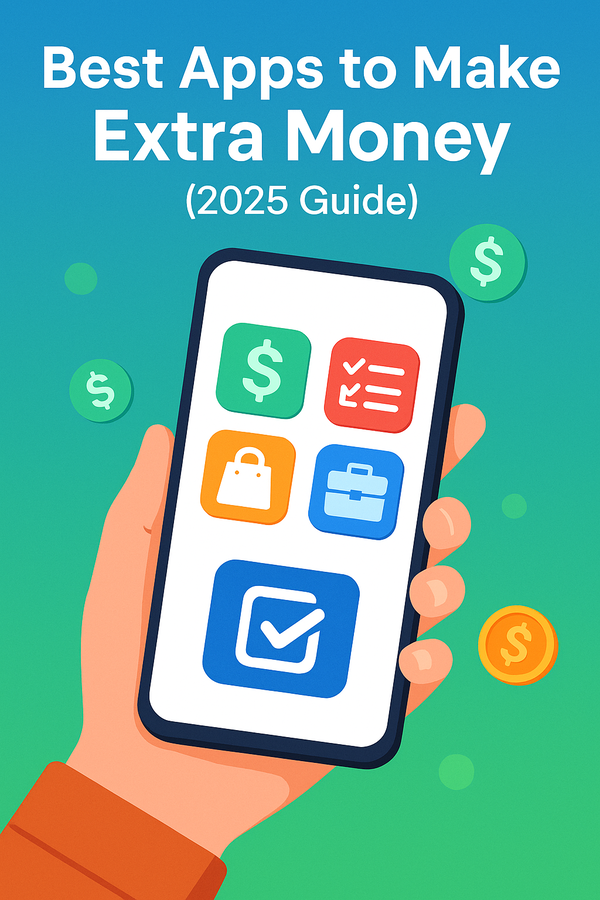Data Annotation in 2026: What the Job Really Pays and Whether It’s a Viable Side Hustle
In 2026, as AI continues to evolve, data annotation has emerged as a popular side hustle. But is it truly a viable way to earn extra income? Let’s delve into real-life experiences to understand the potential and pitfalls of this gig.
Data annotation is a legitimate 2026 side hustle paying $15–$30/hour depending on task type and platform. It requires no coding, only strong language and reasoning skills. Work is flexible but inconsistent, and communication can be limited. It’s best as supplemental income, not a reliable full-time job.
What Is Data Annotation?
You might have seen those YouTube ads with people saying that they can code from home or simply talk to an AI Chatbot and get paid over $20 USD per hour. No? Then try going on LinkedIn jobs, if you type AI Training or Coding AI, there’s a high chance that you will find many openings with Data Annotation.
But are they legit? And if they are, how hard is it to use it for extra earnings? We tried the hiring process and asked around.
Data annotation involves labeling data—such as text, images, or audio—to train machine learning models. Tasks can range from classifying images to evaluating AI-generated content. Which is not exactly what we mean. We’re talking about the company Data Annotation (don’t be fooled, although is good to know the difference!)
So, What Is The Job Like?
Working from home as a data annotator with DataAnnotation.tech is a flexible and engaging opportunity to contribute to the development of artificial intelligence. In this role, you’ll be involved in tasks such as labeling data, writing prompts, and evaluating AI-generated responses. These activities help train AI models to better understand and interact with human language.
To get started, you’ll need to create an account on their platform and complete a starter assessment. Once approved, you can choose from a variety of projects that match your interests and skills. The work is entirely remote and allows you to set your own schedule, making it ideal for students, parents, or anyone seeking flexible employment.D
Compensation starts at $20 per hour, with opportunities to earn more based on the complexity of the tasks and your performance. Payments are made via PayPal, and the platform offers a transparent pay structure.
This position is well-suited for individuals who are detail-oriented, possess strong writing and critical thinking skills, and are comfortable working independently. No prior experience in AI is required, and the platform provides guidance to help you succeed in your role.

An Interesting Hiring Process at DataAnnotation
It’s true. Data annotation has a surprisingly quiet hiring process. You often don’t speak with anyone directly. Instead, you’re asked to complete a series of tests and evaluations, sometimes in multiple languages. For example, on platforms like DataAnnotation.tech or Remotasks, candidates may be asked to review AI-generated prompts, rank chatbot responses, or assess short stories and poems. It’s an immersive introduction to the world of AI — even though you haven’t written a single line of code.
So, do you need to know how to code?
Not at all — at least not to get started. Most entry-level data annotation jobs focus on your language, logic, and critical thinking skills rather than your technical background. That said, those who develop an interest in the field can later transition to higher-paying roles such as AI training specialists or prompt engineers, where basic programming or scripting knowledge (like Python) can become an asset.
In fact, according to Business Insider, some annotators are earning up to $30/hour without technical backgrounds, especially those focused on language-based or judgment-based tasks.
If you’re consistent and able to allocate focused time—let’s say 15–20 hours per week—it’s realistic to earn between $500 and $1,000 per month, depending on the platform and task availability.
Real-Life Experiences
1. Amy Dazzo – Stay-at-Home Mom
Amy, a mother from the UK, earns approximately £400 monthly by dedicating an hour each evening to data annotation. She appreciates the flexibility, allowing her to work from the comfort of her bed while her children sleep. Amy utilizes DataAnnotation.tech, noting that after a straightforward one-hour qualification, she began receiving tasks within a few weeks.
2. Riley Willis – College Student
Riley, a computer science student at the University of Florida, works around 30 hours weekly as a data annotator. Starting at $20 per hour, he now earns up to $30, focusing on fact-checking AI outputs. The remote nature of the job suits his introverted personality and academic schedule.
3. Tori – Personal Finance Enthusiast
Tori, a TikTok content creator, highlights data annotation as an “easy side hustle” that funds her leisure activities. She emphasizes the abundance of available work and the flexibility to choose tasks like surveys, chatbot interactions, and creative writing.
Pros and Cons
Pros:
- Flexibility: Work from anywhere, anytime.
- Decent Pay: Earnings range from $15 to $30 per hour, depending on the task and platform.
- No Formal Qualifications: Many platforms require only a basic assessment to get started.
Cons:
- Inconsistent Workload: Some users report periods with few or no tasks.
- Lack of Communication: Several annotators mention difficulties in reaching support or receiving feedback.
- Unpredictable Platform Policies: Instances of sudden account deactivations without clear reasons have been reported.
Is It Right for You?
Data annotation can be a legitimate and flexible side hustle, especially for those seeking remote work without a strict schedule. However, it’s essential to approach it as a supplementary income source rather than a primary one, given the potential for inconsistent workloads and communication challenges.
Getting Started
If you’re interested in exploring data annotation:
- Research Platforms: Look into sites like DataAnnotation.tech, Remotasks, and Outlier.ai.
- Complete Assessments: Be prepared to undergo initial evaluations to qualify for tasks.
- Stay Informed: Join online communities or forums to share experiences and stay updated on platform changes.
Remember, while DataAnnotation offers opportunities, it’s crucial to manage expectations and remain proactive in seeking tasks.
Check out more ways to increase revenue in 2026 with a full-time job.
Yes. Platforms like DataAnnotation.tech, Outlier.ai, and Remotasks offer real paid tasks such as evaluating AI responses, labeling content, or reviewing prompts. Most workers earn $15–$30/hour, but workload can be inconsistent.
No coding is required for entry-level roles. Most tasks rely on reading comprehension, logic, critical thinking, and attention to detail. However, learning basic Python or prompt engineering can help you transition into higher-paying AI training roles later.
Most workers earn between $500 and $1,000/month if they can dedicate 10–20 hours weekly. Some college students and freelancers who work 25–30 hours report earning up to $1,500/month depending on task availability and pay rate.




